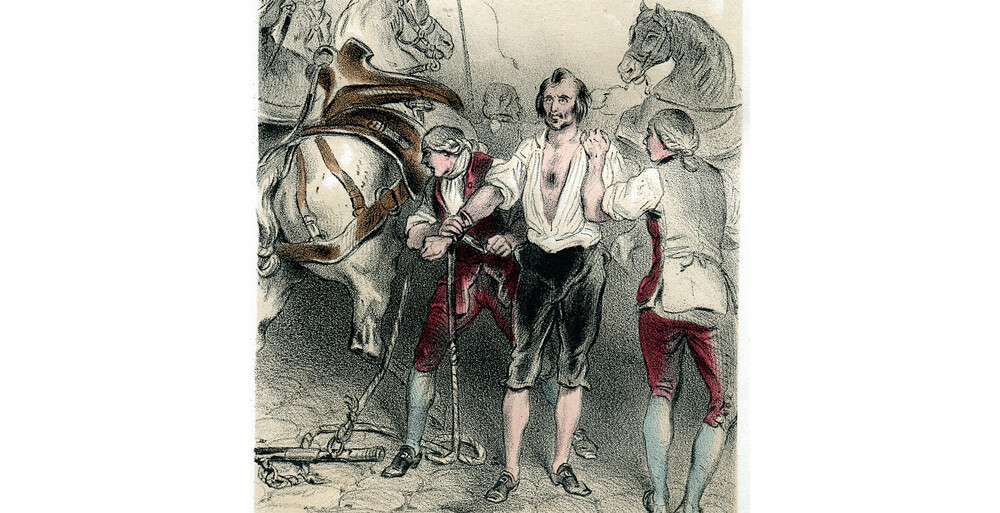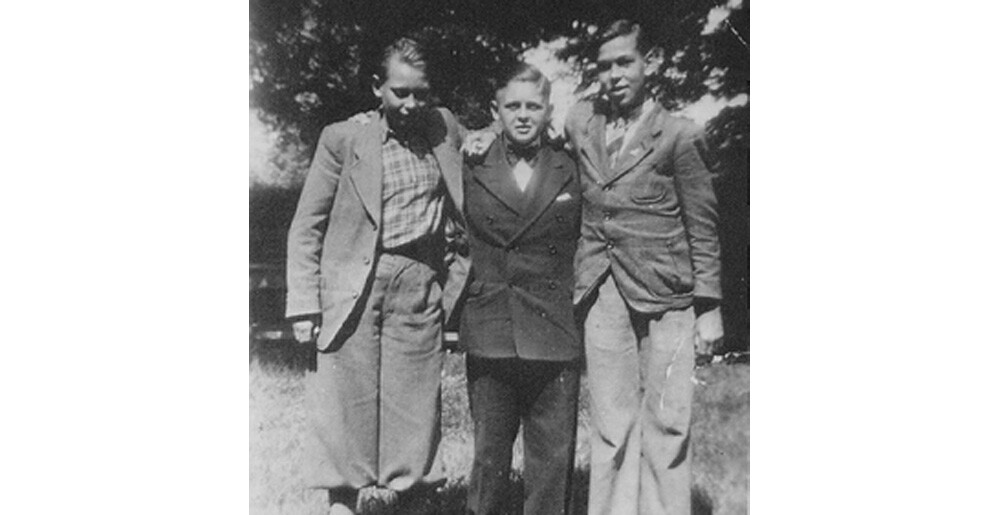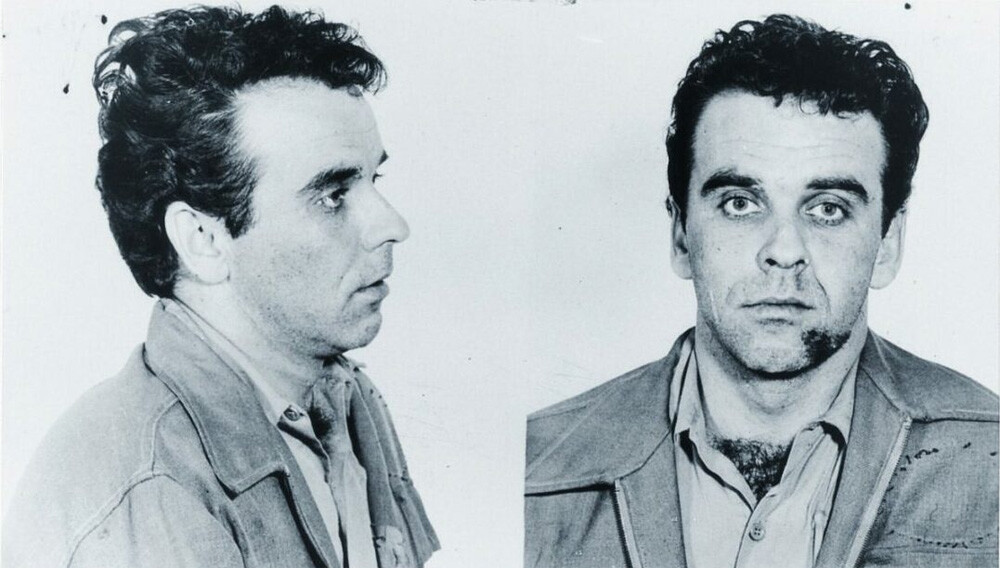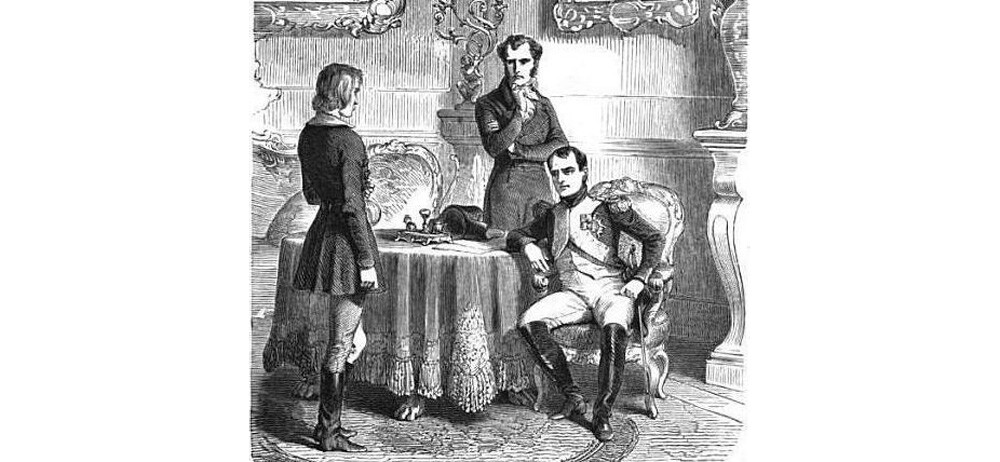5 Badass Lines People Said After Being Sentenced to Death

The court has announced that they will put you to death for your crimes. What do you say in response? Personally, we’d recommend saying nothing and letting your lawyer speak for you, in preparation for planning your appeal. But maybe the time for that has passed, or maybe this is a kangaroo court and you know all hope is lost. Now, you have only one option left: coming up with some awesome quip that will go down in history.
‘Permit Me to Point Out That You Have Made Three Mistakes in Spelling’
Executions were the highest form of entertainment during the French Revolution, so scribes at the time carefully documented many memorable final lines from the condemned. For example, you have one dentist who said to his executioner, “Come on and guillotine me.” You have a locksmith who pointed at the prisoner next to him and said, “I have been condemned to death but not to go to execution with this famous wretch.” That wretch next to him was the Duke of Orleans.
The Duke, by the way, had supported the Revolution and fought to end the monarchy. He’d even changed his name to “Phillip Equality.” None of that saved him. Right before he died, the executioner wanted to take his boots off him. The Duke said, “Leave them on; it will be easier for you to unboot the corpse.”

Top prize, though, has to go to Thomas de Mahy, Marquis de Favras. After he read his death warrant, he said, “Permit me to point out that you have made three mistakes in spelling.” The Marquis was accused of an elaborate plot that included rescuing the king and also laying siege to the whole city. The trial suggested that this plot was entirely imaginary and just cooked up by his enemies, but he still gamely offered to offer up the names of co-conspirators in exchange for a reprieve. That didn’t work; the people wanted him dead, and the man was hanged.
In 1790, trying to save the King of France was a capital offense, but in earlier years, you’d naturally be put to death for trying to kill him. Robert-François Damiens stabbed King Louis XV in 1757, and he’d go on to be executed by the same executioner who’d later guillotine King Louis XVI.

Damiens was the last man in France to be drawn and quartered. It’s a horrific method of execution, and Damiens was to receive a grislier version of this than most. First, they told him, they’d parade him naked in a cart while he held up a burning stick that would hurt his hands. He’d have to confess on his knees, and then they would torture him (“his breasts, arms, thighs, and legs”). They’d chemically burn the hand that had wielded the knife then pour molten lead into his wounds. Next would come the quartering: They’d tie his four limbs to four horses, who’d rip him apart. They’d burn the severed parts at the stake. Said Damiens, after hearing all this, “Well, it’s going to be a tough day.”
The torture would end up being even worse than what is mentioned above. They hadn’t announced the part where they’d rip his balls off. The quartering part was also unexpectedly messy. The horses didn’t pull with their full weight, so the executioner had to step in and saw at Damiens a little to give them a head start.
‘Your Turn Is Next!’
Helmuth Hübener has the distinction of being the youngest person to be “legally” executed by the Nazis. This meant that he was the youngest person to be tried for opposition to the Nazis and then put to death; the Nazis were in the process of killing a whole lot of other people without trials. Even these trials weren’t legit, though. They created this special court to more easily convict people of treason after several people Hitler falsely pinned the Reichstag fire on were acquitted.
Hübener was found guilty of writing pamphlets, and was sentenced to death. This means that the next time you get annoyed at a 17-year-old for posting something political, they are entirely justified in calling you a Nazi. “I have to die now for no crime at all,” he said to the judges. “Your turn is next!” Some sources make him sound even calmer and more eloquent, saying, “So now it’s my turn, but your turn will come.”

via Wiki Commons
The judges would not in fact go on to face justice for their actions during this period. Also unfortunate: It’s theorized that Hübener was deliberately being rude to the judges to make his co-defendants look nicer in comparison, in hopes of getting leniency for them, but this didn’t work. The judges gave the others even harsher sentences than the state requested.
On February 12, 1962, Canadian man Ronald Turpin broke into a hotel and stole $631. He took off in his car, and a traffic cop soon pulled him over for a broken taillight. Then came a shoot-out, which ended with wounds in Turpin’s arm and face and a fatal wound in the cop’s abdomen. No one knows exactly how the confrontation went down, but the preferred-upon explanation is Turpin pulled a gun on the cop, who valiantly defended himself. “The 32-year-old policeman squeezed off two rounds with his ebbing breath,” reads one flowery description.

Some might say that shooting an armed man trying to take you in is a more justifiable sin compared to certain kinds of premeditated murder. The law would disagree, instead saying that the single worst kind of murder is killing a cop. That December, less that a year after the crime was committed, Turpin was hanged. In the modern era, that’s absurd — a conviction that quick is unlikely, and an execution usually follows years or decades of appeals. Canada hanged another man that day, too, barely a year after that crime had been committed, and this other guy might have been innocent.
Right before the hanging, officials told the men that they’d likely be the last people to be executed in Canada. “Some consolation,” said Turpin. Then they were both put to death. The prediction had been correct — Canada executed no people after this.
Let us return again to the subject of assassinating the French. Friedrich Staps — a 17-year-old German, much like Helmuth Hübener — approached Napoleon when the emperor stopped by Germany in 1809. His plan was flawless. He’d go up to Napoleon with a petition in his hand, pull out a huge knife from under his coat and stab him.
This didn’t work. Guards stopped him, searched him and found the knife. They asked him if he’d planned to assassinate Napoleon, and Staps said yes (most lawyers advise against saying this). They arrested him, but they also gave him the opportunity to talk to Napoleon after all. He was invited to talk to him privately and explain himself — unarmed of course, and with his hands bound behind his back.

Napoleon suggested his would-be assassin had to suffering from some form of insanity, but Staps insisted he was not, and a doctor backed this up. Still, Napoleon gave him a chance at clemency if he’d just ask for it. “I want no pardon,” said Staps. “I feel the deepest regret for not having executed my design.” Okay, said Napoleon, but what if he went and issued a pardon anyway? “I would notwithstanding seize the first opportunity of taking your life,” said Staps.
As exciting as it would have been to set the youth free and see what happened next, his hands were tied. Staps went to the firing squad. His very last words were, “Death to the tyrant,” but really, that part’s less impressive. Lots of people die yelling that.
Follow Ryan Menezes on Twitter for more stuff no one should see.